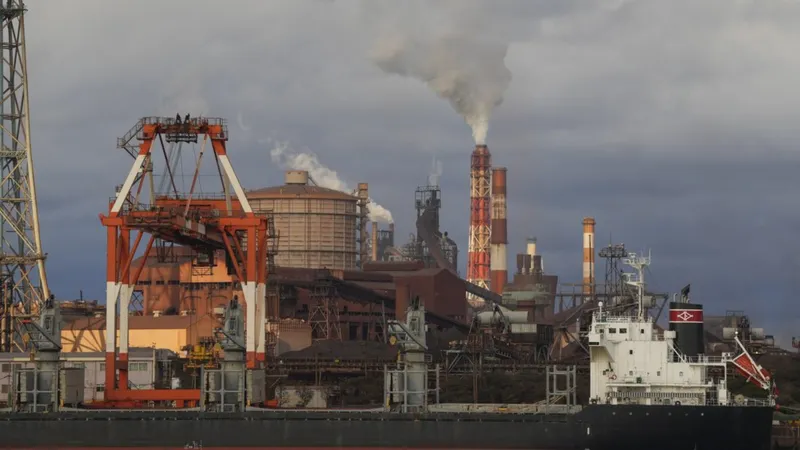The White House says Nippon Steel’s plan to buy US Steel should be probed on national security grounds,even though Japan is a “close ally”.
It also expressed concern about the deal’s potential impact on supply chain reliability in a Thursday statement.
The $15bn (£12bn) purchase of the 122-year-old steelmaker would create one of the world’s biggest steel companies.
But the powerful United Steelworkers (USW) union also criticised the deal as “shortsighted”.
In a statement, Joe Biden’s national economic adviser, Lael Brainard, said the US president believed that “the purchase of this iconic American-owned company by a foreign entity—even one from a close ally—appears to deserve serious scrutiny”.
Ms Brainard added that President Biden views US Steel as a “core component” of overall domestic steel production.
As he seeks re-election, Mr Biden has cast himself as one of the most pro-union US presidents by joining the picket line of striking car workers. “President Biden believes union workers are the best workers in the world,” the White House statement added.
The USW has welcomed the White House’s statement, saying that the deal could “impact the future of domestic steel production”.
“US Steel has made it clear, time and again, that its first and only priority is short-term financial gain for shareholders, even if this comes at the expense of workers,” it added.
Nippon Steel said the purchase would enhance its long-term growth prospects by expanding its footprint in the US, where the industry is expected to grow, boosted by recent government investments in infrastructure and electric cars.
Japan’s largest steelmaker added that it would honour existing contracts with US Steel union workers and that the company would retain its name, brand and headquarters in Pittsburgh.
US Steel has been looking for a buyer since August but rejected smaller bids from domestic rivals such as Cleveland-Cliffs and Nucor. Nippon’s offer was almost twice what US bidders were prepared to pay.
Created in 1901 by business titans Andrew Carnegie and JP Morgan, the company at its height was one of the biggest in the world, powered by growth and industrialisation in the United States.
But like the wider US steel industry, its dominance has eroded over decades in the face of cheaper foreign competition.
Today it employs some 22,000 people globally, including more than 14,000 in the US.




